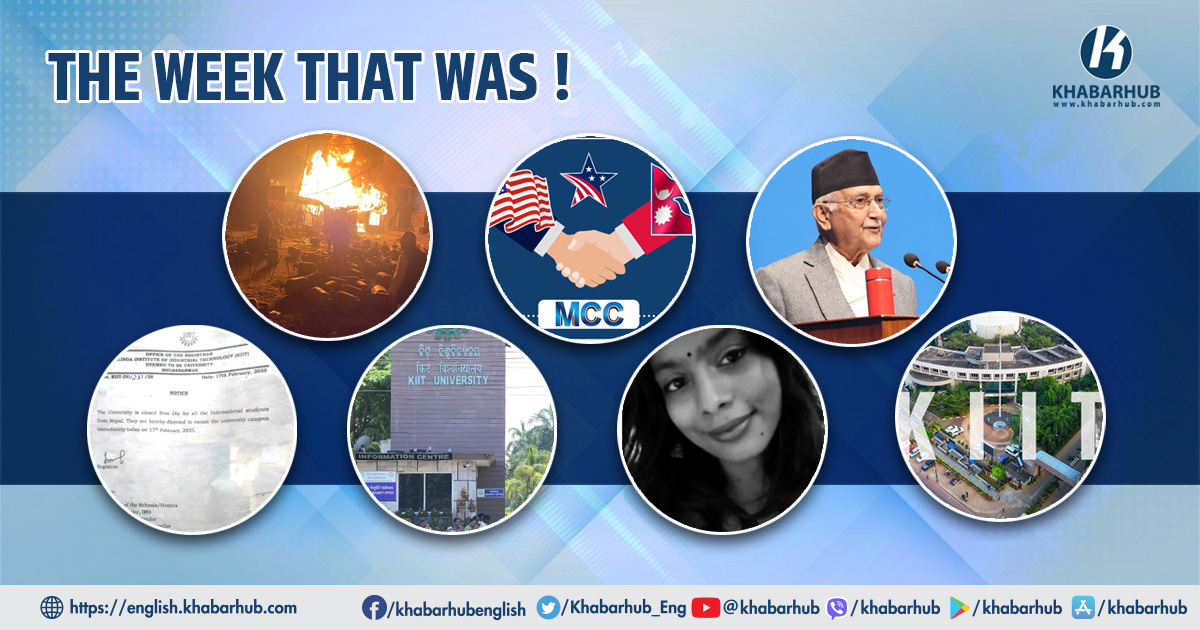KATHMANDU: Last week’s events in Nepal were marked by a series of significant political, diplomatic, and social developments.
Former King Gyanendra Shah expressed strong dissatisfaction with the current state of the country, urging for national unity to safeguard Nepal’s future.
In a video message ahead of Democracy Day, he emphasized the sacrifices made for the nation’s welfare, asserting that his actions should not be interpreted as weakness but as a commitment to the people’s well-being.
His call for unity reflects the ongoing political divisions in Nepal, as he pointed to the historical cooperation between the monarchy and the people to strengthen democracy.
In another political development, Nepali Congress President Sher Bahadur Deuba abruptly canceled his scheduled visit to India, citing the absence of high-level political meetings in New Delhi.
Deuba was set to be the keynote speaker at the ‘Kumbh Global Summit on Development and Sustainability’ in Prayagraj, but his plans changed after his wife, Foreign Minister Dr. Arzu Rana, returned from Oman.
This last-minute cancellation raised questions about Nepal’s foreign policy priorities and its engagement with India, especially as the region’s diplomatic dynamics continue to evolve.
Overall, last week’s events in Nepal highlighted a blend of internal challenges and external diplomatic developments, underscoring the complexities of navigating political unity, international relations, and economic growth in a rapidly changing global environment.
Tensions also escalated in Odisha, India, following the suspicious death of Nepali student Prakriti Lamsal at the Kalinga Institute of Industrial Technology (KIIT).
After her death, around 700 Nepali students staged protests demanding an investigation, but the university administration forcibly removed them from the hostel, deploying police and reportedly using baton charges.
Eyewitnesses raised concerns about the handling of the situation, with the university initially citing suicide and later concealing the body.
The incident sparked outrage in Nepal, leading to the victim’s cremation at Swargadwari Ghat in Rupandehi.
In response to the mistreatment of the students, KIIT took disciplinary action, suspending staff involved in the incident and launching an internal investigation.
On the international front, the Millennium Challenge Corporation (MCC) projects in Nepal were also affected, with a suspension following an executive order from the U.S. government.
This halted the implementation of projects financed by the U.S., impacting the relationship between Nepal and the U.S. and raising concerns about the future of foreign aid to the country.
At the local level, Kathmandu Metropolitan City Mayor Balen Shah expressed discontent with the treatment of Nepal by major foreign powers, including the U.S., India, and China.
He appealed to Prime Minister KP Sharma Oli, urging for a stronger national identity and a foundation for Nepali citizens to live with dignity.
His status resonated with broader sentiments of frustration among the people regarding Nepal’s international position.
Domestically, Nepal celebrated its 75th Democracy Day, commemorating the establishment of democracy on February 18, 1951, marking the end of the autocratic Rana regime.
The celebration, which included official ceremonies, speeches, and cultural programs, reflected on the country’s democratic journey and the challenges it continues to face.
In the U.S., President Donald Trump criticized U.S. foreign aid to Nepal and India, questioning the allocation of millions of dollars to both countries under various aid programs.
His remarks, particularly concerning funds for Nepal’s fiscal federalism and biodiversity conservation, generated discussions about the effectiveness of such aid and its role in Nepal’s development.
On the economic front, Nepal saw a 13.30% increase in foreign trade during the first seven months of the current fiscal year, with imports and exports both showing significant growth.
This positive trend indicates resilience in the Nepali economy, despite global challenges.
Additionally, Nepal signed Memoranda of Understanding (MoUs) with Oman to strengthen cooperation in energy and tourism.
Foreign Minister Dr. Arzu Rana’s meetings with Omani officials highlighted the potential for collaboration in sustainable energy and tourism, which are crucial sectors for Nepal’s long-term economic growth.
Overall, last week’s events in Nepal highlighted a blend of internal challenges and external diplomatic developments, underscoring the complexities of navigating political unity, international relations, and economic growth in a rapidly changing global environment.









Comment